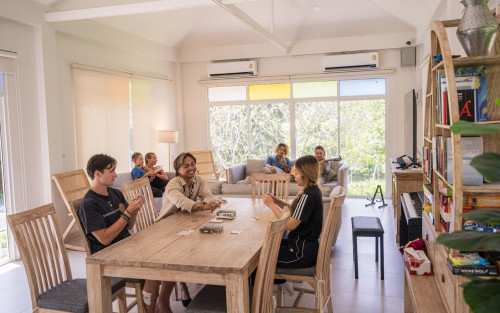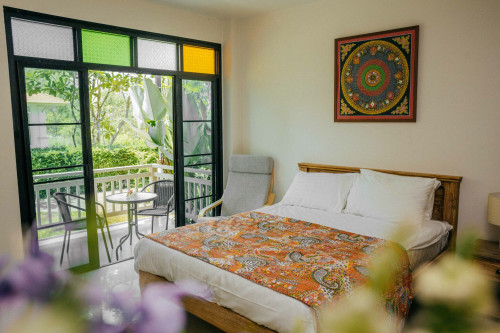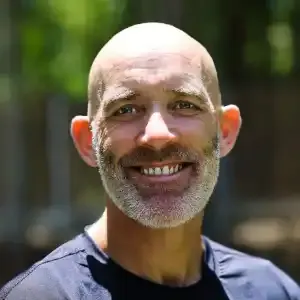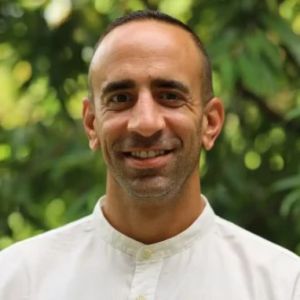






The Beekeeper House Chiang Mai
Verified Center
This provider's information has been quality-checked by Recovery.com's Research Team for accuracy and completeness, including center verification through appropriate third-party organizations.
Treatment Focus
This center treats substance use disorders and mental health conditions. You'll receive individualized care catered to your unique situation and diagnosis, learn practical skills for recovery, and make new connections in a restorative environment.
Primary Level of Care
Offering intensive care with 24/7 monitoring, residential treatment is typically 30 days and can cover multiple levels of care. Length can range from 14 to 90 days typically.
Treatment Focus
This center treats substance use disorders and mental health conditions. You'll receive individualized care catered to your unique situation and diagnosis, learn practical skills for recovery, and make new connections in a restorative environment.
Primary Level of Care
Offering intensive care with 24/7 monitoring, residential treatment is typically 30 days and can cover multiple levels of care. Length can range from 14 to 90 days typically.
Private Pay
You pay directly for treatment out of pocket. This approach can offer enhanced privacy and flexibility, without involving insurance. Exact costs vary based on program and length of stay. Contact the center for specific details.
The Beekeeper House Chiang Mai
The Beekeeper House Chiang Mai
About The Beekeeper House Chiang Mai
Beekeeper House aims to set new standards in the quality of care for their clients. They are registered and licensed by the Ministry of Health and have an exceptional, qualified clinical team in place to ensure the diverse needs of their clients are met. The Beekeeper House is passionate about ethical and quality treatment. Their team is qualified to treat a wide variety of mental health issues, with licensed psychologists on their team.
An Integrative Approach to Treatment
The Beekeeper House’s treatment approach is integrative, blending clinical psychology with eastern philosophy. They treat clients as a whole, treating their mind, body, and spirit. Mindfulness, yoga, and meditation have some of the strongest research support for effectiveness among alternative and holistic treatments. The Beekeeper House combines these approaches with clinical psychology and contemporary medicine to produce powerful outcomes for all clients. Their 16 bedrooms afford clients the individualized care they need, and the opportunity to socialize and meet new people.
Comprehensive, Curated Care
The Beekeeper House is part of a regional mental health and wellbeing company group. They owned and operated an outpatient facility in Cambodia before opening Beekeeper House. The Beekeeper House also partially owns a number of wellbeing companies that specialise in yoga and holistic practices. With this range, they have over 15 regional psychologists and the company-wide expertise to create programmes with clinical excellence at their heart.
Recover in A Thailand Retreat
The Beekeeper House understands the need for privacy, comfort, and a beautiful setting to enable the work of recovery and effective treatment. They have designed a stunning resort-style center spread out over 20,000 square meters. Their mountain location also has beautiful botanical gardens, built by The Beekeeper House. They built a bespoke recreation Sala for downtime, and a yoga and meditation Sala for clients to use. For more recreation opportunities, Beekeeper House has a pool and a state-of-the-art gym, and a community garden for clients to enjoy. They also have an art studio, as well as memorable excursions for their clients to enjoy.
Holistic Wellness Therapy
The Beekeeper House believes that Holistic Wellness Therapy plays an integral role in recovery and healing. Holistic Wellness Therapy can take not only the mind but the body and spirit into account as well. Their holistic approaches included in the residential program are used to help address addiction, behavioural problems, and mental health conditions in an alternative and supplemental way to further promote the benefits of clinical therapy. They offer several types of holistic wellness therapies, including massages, meditation and mindfulness, yoga, tai chi, sound baths, breath work, guided imagery, and more by certified holistic practitioners to help clients find the right combination of techniques that address their specific needs. Additionally, they offer physical activities in the form of various types of physical training, martial arts such as Muay Thai and Jiu Jitsu, pool exercise sessions and more to further provide options to clients in their journey to recovery.

Center Overview
Treatment Focus
This center treats substance use disorders and mental health conditions. You'll receive individualized care catered to your unique situation and diagnosis, learn practical skills for recovery, and make new connections in a restorative environment.
Pricing and Program Length
Estimated Center Costs
The cost listed here (Call for Price), is an estimate of program cost. Center price can vary based on program and length of stay. Contact the center for more information. Recovery.com strives for price transparency so you can make an informed decision.
Luxury rehab centers offer a unique blend of luxurious amenities and high-quality treatment. From private suites to gourmet dining, personal trainers to spa treatments, these facilities provide a high level of comfort and discretion.

Meet Your Care Team

Dr. Carin Killips
Clinical Director
CPsychol

Dr. Gavin Jones
Clinical Supervisor
PhD

Robert Common
Admissions Psychologist

Amp Brown
Operations Director

Dr. Wilson Howe
Clinical Supervisor
PhD

Dr. Kanok
Medical Director
MD, PhD

Nurse Orn
Charge Nurse
Masters in Mental Health Counseling

Terry
Support Worker

Fang
Head of PT

Aomam
Physical Therapist

Jack
Personal Trainer

Keith
Holistic & Wellness Coach

Melanie
Physical Wellness & Holistic Manager

Nut
Head of Support

Dr. Dominika
Clinical Psychologist

Colin
Psychologist

Ahmed
Senior Admissions Manager

Yam
Support Worker

Yui
Senior Accountant

Palm
Operations Manager




Levels of Care






Your Care Options
Specializations
Alcohol
Using alcohol as a coping mechanism, or drinking excessively throughout the week, signals an alcohol use disorder.
Anxiety
Anxiety is a common mental health condition that can include excessive worry, panic attacks, physical tension, and increased blood pressure.
Drug Addiction
Drug addiction is the excessive and repetitive use of substances, despite harmful consequences to a person's life, health, and relationships.
Post Traumatic Stress Disorder
PTSD is a long-term mental health issue caused by a disturbing event or events. Symptoms include anxiety, dissociation, flashbacks, and intrusive thoughts.
Trauma
Some traumatic events are so disturbing that they cause long-term mental health problems. Those ongoing issues can also be referred to as "trauma."
Who We Treat
Young Adults
Emerging adults ages 18-25 receive treatment catered to the unique challenges of early adulthood, like college, risky behaviors, and vocational struggles.
LGBTQ+
Addiction and mental illnesses in the LGBTQ+ community must be treated with an affirming, safe, and relevant approach, which many centers provide.
Men and Women
Men and women attend treatment for addiction in a co-ed setting, going to therapy groups together to share experiences, struggles, and successes.
Midlife Adults
For adults ages 40+, treatment shifts to focus on the unique challenges, blocks, and risk factors of their age group, and unites peers in a similar community.
Professionals
Busy, high-ranking professionals get the personalized treatment they need with greater accommodations for work, privacy, and outside communication.
Approaches
Bio-Medical
A philosophy focusing on the biomechanics behind mental health disorders, using prescribed medications as a supplement to behavioral therapy.
Evidence-Based
A combination of scientifically rooted therapies and treatments make up evidence-based care, defined by their measured and proven results.
Holistic
A non-medicinal, wellness-focused approach that aims to align the mind, body, and spirit for deep and lasting healing.
Individual Treatment
Individual care meets the needs of each patient, using personalized treatment to provide them the most relevant care and greatest chance of success.
Therapies
1-on-1 Counseling
Patient and therapist meet 1-on-1 to work through difficult emotions and behavioral challenges in a personal, private setting.
Meditation & Mindfulness
A practiced state of mind that brings patients to the present. It allows them to become fully aware of themselves, their feelings, and the present moment.
Trauma-Specific Therapy
This form of talk therapy addresses any childhood trauma at the root of a patient's current diagnosis.
Rational Emotive Behavior Therapy
A type of cognitive therapy that identifies negative self-defeating thoughts and behaviors, rewriting beliefs to be positive, empowering, and present.
Mindfulness Therapy
This ancient practice can be mental, emotional, and even spiritual. In meditation, you focus your attention on the present moment without judgement.
Art Therapy
Visual art invites patients to examine the emotions within their work, focusing on the process of creativity and its gentle therapeutic power.
Couples Counseling
Partners work to improve their communication patterns, using advice from their therapist to better their relationship and make healthy changes.
Experiential Therapy
With this approach, patients heal by doing. Therapists help patients process difficult emotions to speak, using guided activities like art or dance.
Conditions We Treat
Pornography Addiction
A person with a porn addiction is emotionally dependent on pornography to the point that it interferes with their daily life and relationships.
Schizophrenia
Schizophrenia is a serious mental health condition that causes hallucinations, delusions, and disordered thinking.
Personality Disorders
Personality disorders destabilize the way a person thinks, feels, and behaves. If untreated, they can undermine relationships and lead to severe distress.
ADHD, ADD
ADHD is a common mental health condition caused by dopamine imbalance. Common symptoms include inattention, hyperactivitiy, and impulsivity.
Anger
Although anger itself isn't a disorder, it can get out of hand. If this feeling interferes with your relationships and daily functioning, treatment can help.
Anxiety
Anxiety is a common mental health condition that can include excessive worry, panic attacks, physical tension, and increased blood pressure.
Bipolar
This mental health condition is characterized by extreme mood swings between depression, mania, and remission.
Burnout
Burnout entails mental and physical exhaustion, and leads to a severe lack of fulfillment. This condition is often caused by overwork.
Codependency
Codependency is a pattern of emotional dependence and controlling behavior. It's most common among people with addicted loved ones.
Substances We Treat
Alcohol
Using alcohol as a coping mechanism, or drinking excessively throughout the week, signals an alcohol use disorder.
Benzodiazepines
Benzodiazepines are prescribed to treat anxiety and sleep issues. They are highly habit forming, and their abuse can cause mood changes and poor judgement.
Chronic Relapse
Consistent relapse occurs repeatedly, after partial recovery from addiction. This condition requires long-term treatment.
Co-Occurring Disorders
A person with multiple mental health diagnoses, such as addiction and depression, has co-occurring disorders also called dual diagnosis.
Cocaine
Cocaine is a stimulant with euphoric effects. Agitation, muscle ticks, psychosis, and heart issues are common symptoms of cocaine abuse.
Drug Addiction
Drug addiction is the excessive and repetitive use of substances, despite harmful consequences to a person's life, health, and relationships.
Ecstasy
Ecstasy is a stimulant that causes intense euphoria and heightened awareness. Abuse of this drug can trigger depression, insomnia, and memory problems.
Heroin
Heroin is a highly addictive and illegal opioid. It can cause insomnia, collapsed veins, heart issues, and additional mental health issues.
Languages
Aftercare
Care Designed for Your Needs
Personal Amenities
Amenities
Special Considerations
LGBTQ group
Group therapy unites LGBTQ+ patients in a safe and culturally competent setting, encouraging peer support under the expert leadership of a therapist.
Religion-Based Track
Patients can join faith-based recovery tracks to approach recovery with others in their faith, healing in a like-minded group with similar goals.
Young Adults Program
Programs for young adults bring teens 18+ together to discuss age-specific challenges, vocational and educational progress, and successes in treatment.
Activities
Yoga
Yoga is both a physical and spiritual practice. It includes a flow of movement, breathing techniques, and meditation.
Off-Site Activities
Off-Site Amenities
What people are saying
Treatment
5.0
Accommodations
4.8
Food & Nutrition
5.0
Value
5.0
Pros
- Treated With Respect (2)
- Straightforward Costs & Expectations (2)
- Personalized (2)
- Gourmet & Nutritious Food (2)
Anonymous
Treatment in 2024 • (30 days) • Reviewed 04/28/25
Former Client
NJB
Treatment in 2022 • (45 days) • Reviewed 08/23/22
Former Client
•Social Worker
•Australia
T.A
Treatment in 2023 • (30 days) • Reviewed 06/26/23
Former Client






